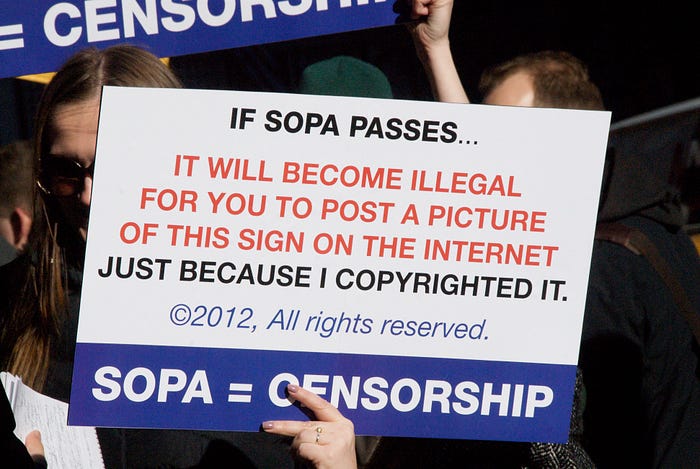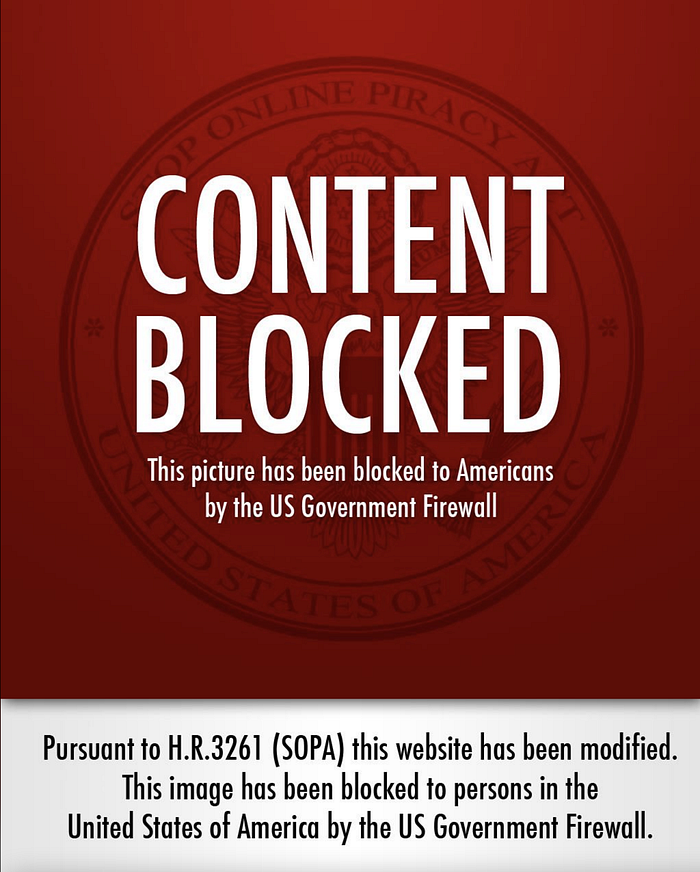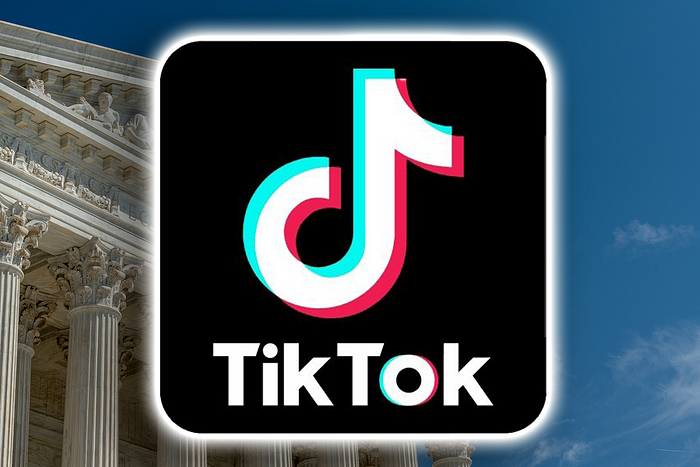Tech | Opinion
In August 2005, Jammie Thomas-Rasset, a natural resources coordinator from Brainerd, Minnesota, received a piece of mail that would change her life forever. The then-28-year-old Native American mother of four was blissfully unaware of the protracted nightmare ahead. Corporate coldness, an uncaring (and downright hostile) legal system, and extortionate legal predation were about to change her life permanently.
The letter was a cease-and-desist, a legal warning telling her that if she continued using her computer the way she had been, severe penalties awaited. These letters are often (not legally binding) scare tactics. But Jammie's case was destined to be different. She was being sued by the major record labels for using file-sharing software called Kazaa to download mp3 files off the Internet.
Her case was part of a lawsuit spree the Recording Industry Association of America (RIAA) undertook in the mid-2000s, becoming a predatory, bounty-hunter-like entity, tasked with pursuing people illegally sharing songs with peer-to-peer software like Napster at the behest of major record labels. Napster was an ephemeral-yet-revolutionary software. It allowed users to swap mp3 files over the Internet from 1999-2001. It was low-tech (and ugly), but it accomplished the impossible—emancipating music from its physical medium, allowing it to be transferred, digitally, to friends.

Some wanted free or unlimited music, even if it was considerably lower than CD quality. Some enjoyed the rush of breaking the law in a modernistic, high-tech way. All appreciated the disencumberment of music from physical mediums—it felt revolutionary. People who embraced digital music at the time, including Steve Jobs. He understood that the tech was already developed and would be the future. You can't un-invent a popular technology.
Kazaa, the software Jammie was accused of using, was an offshoot of Napster, one of several that cropped up after the U.S. Supreme Court forced Napster to shut down following lawsuits from major labels. In 2001, then-president of the RIAA, Hillary Rosen, said, "It's time for Napster to stand down and build their business the old fashion way — they must get permission first." "Permission" is a curious word choice.
The RIAA claimed Jammie had illegally downloaded over 1,700 mp3 files, but they said they were only suing her for twenty-four of them. Twenty-four songs of low quality, not even CD quality? How bad could it be? Attached to the letter was a settlement offer. $4,500 could make it all go away. But $4,500 seems a little steep for 24 songs that cost $0.99 cents, doesn't it?
She refused and things would only get worse. In court, Thomas-Rasset was ordered to pay an astounding $222,000 after a jury found her guilty. $9,250 per song. There was a retrial and things got even worse. She was then ordered to pay $1,920,000 ($80,000 per song). Retribution unfolded. Sony's lawyer said $150,000 in damages was "certainly" appropriate.
Jammie may not have downloaded the files in the first place. While the downloads were tracked to her IP address, five people had access to the computer. She claimed, in testimony and through tears, that she'd never heard of the music downloaded, Florida death metal band Morbid Angel.
After a series of trials and appeals, The Supreme Court of the United States ordered her to pay the original $222,000. She would've been better off stealing the CD from a store. She might've gotten probation and paid a $200 fine. Even the staunchest digital piracy opponents can agree that $222,000 is extreme for twenty-four songs.
Two factions have been battling since: those who want to keep swaths of the Internet free and those who think the Internet should primarily be a tool for corporations to rake in considerable profits.

A few years after the Thomas-Rasset case, another piracy battle exploded when the U.S. Government tried to pass PIPA and SOPA, two anti-piracy bills that aimed at cracking down on online "piracy" and copyrighted material. They were atrocious proposals. Combined, (SOPA) the Stop Online Piracy Act and (PIPA) the Protect IP Act's broad language would've given the U.S. Government the power to take down websites if they were found to have copyrighted material on them.
How many sites have copyrighted material uploaded by users? It's ubiquitous. Most sites that allow user uploads have content posted by someone besides the copyright holder. We call them "memes" and don't take them all that seriously. But they are serious. When we take something and change it, warping it into something different, twisting and distorting meanings and contexts to produce something new, we're pushing human creativity to its limits. It's beautiful. Imagine a world where you couldn't share memes, and the government dismantles websites over users uploads.
Critics (rightfully) argued it gave the government too much power to censor the Internet. The push-back was swift and effective: thousands of websites, from Google to Wikipedia, fought back. Sites blacked their pages out in opposition to the bills. Swaths of the Internet stopped working in protest.
Users blotted out their profile pictures with black squares, messages about the proposed laws, or the placeholder for profile pictures with a message saying the copyright holder couldn't be confirmed, and the photo wasn't available.

Remnants of the mass protest remain, digital footprints left behind. The Protest Against PIPA and SOPA! Facebook group is still up twelve years later. The r/SOPA Subreddit is still there. These artifacts are remnants from a not-so-distant past, a moment within our lifetimes when protesting against government censorship of the Internet was demonstrably effective.
The bills failed, withdrawn under public pressure, but the battle has continued on. Never in my life had I seen such a swift outcry against obviously bogus legislation. But, the forces who'd strip the Internet of its freedom still lurk among us, waiting to pounce.
These early battles were over who had the right to distribute what. Now, we face the new struggles for Internet freedom—which apps and sites you can use (and which you can't). Social media is in their crosshairs.
Florida recently passed a law forcing social media sites to ensure no children under 16 access their platforms without parental consent. U.S. states pushing to de facto ban porn sites (and LGBTQ sites) by using centuries-old obscenity laws that legislate morality.
The TikTok Ban
On April 23rd, 2024, the Biden Administration signed a piece of bipartisan legislation into law that bans the popular short-form video app TikTok if its parent company, ByteDance, doesn't sell TikTok to an American owner. ByteDance responded, challenging the U.S. Government on the legality of singling them out. Now, ByteDance and the Federal Government are staring one another down like a pair of gunslingers.
The ban (or forced sale) won't sit well. The fact that the ban was appended to the much-needed aide to Ukraine—who's desperately repelling Russia's invasion—and Israel—who's engaged in a war that's ripped a chasm in American society—makes the sting all the greater. Prohibiting a popular technology among young people will unquestionably kick up some dust (as we learned with both Napster and SOPA). These kinds of mistakes cost people elections. In this case, there's no one party or person to blame, since it was a bipartisan effort. But serious questions remain about the ban.
First, who'll buy the platform? Hardly anyone can afford to buy TikTok. Forcing ByteDance to sell within twelve months is basically shutting them down. Twelve months isn't long to find a buyer, even if they were going to sell. ByteDance refuses and would rather the app shut down, the optics of which would be terrible for the U.S. Government.
Young people are going to think they banned it just because it's popular in their age demographic. That's what I'd think as an eighteen-year-old, and my trust for authority would be irrevocably tarnished. A quick Twitter search proves me right. People think it's a matter of politics, not national security. Today's youth deserve a dignified explanation, which we haven't gotten, about why TikTok is so dangerous—it's not enough to say we don't have "permission" to use this technology.
The government says China could use the app to 1. Harvest user data that could be given to the Chinese Communist Party and, or 2. Sway public opinion with their algorithms.
- The problem with #1 is we haven't been told why this is bad. Every other big tech company does the same. Despite my staunch disapproval of surveillance capitalism, singling out TikTok makes no sense when Google, Facebook, etc. all engage in the same surveillance. We need an explanation why the CCP knowing I love cute animal videos is a national security threat. What tangible harm could possibly come from that knowledge?
- The problem with #2 is Facebook, YouTube, and Twitter have already swayed public opinion with their algorithms. Why are we singling out TikTok, when Facebook swayed the 2016 election in the U.S. and YouTube swayed the 2018 election in Brazil?
Celebrities pressured TikTok after the October 7th attacks in Israel over the rise in the anti-Semitic content (that can be found on the other social media platforms). TikTok isn't unique, here. Facebook facilitated a genocide in Myanmar, while YouTube created anti-vaccine sentiment that facilitated a Zika virus epidemic in Brazil. Social media technologies have done real-world harm. TikTok merely poses a threat. The others delivered.
Banning TikTok alone is like banning a single gun manufacturer and declaring victory over gun violence. We all know gun violence is a more complex problem than any single manufacturer, and social media's ills are more complex than one platform.
TikTok isn't even exceptionally popular. It's the 5th most popular social media platform, according to Pew Research data, behind Pinterest. 33% of Americans use TikTok, 35% use Pinterest. Only 62% of young people (18–29) use TikTok, while 93% use YouTube. More young people use Facebook (67%) and Snapchat (65%).
While it would behoove us to address the dangerous spread of misinformation—the kind that can sway elections and push populations to the brink—the question is how. What can we do about the unfettered spread of disinformation influencing people? Why shutdown TikTok while the rest exploit us at-will? These questions need answers, not scapegoats, but instead of answering them, we seem eager to scapegoat TikTok, just like we did Napster and Jammie Thomas-Rasset.
We should be apprehensive about several levels of government in multiple countries unilaterally prohibiting entire websites and apps without clear violations of the law. The fact that our government feels entitled to ban these sites and apps without much explanation is disconcerting. I worry that, as with Napster and SOPA, we're performing surgery with a Paleolithic stone hammer when we can least afford imprecision. Like those other cases, it will backfire.
The good news is that SOPA and PIPA prove that when we band together and apply sufficient political pressure, we can still get good things done, whatever that may look like. Whether it's anti-war or anti-censorship, we know that protests, even online protests, can still work. The SOPA and PIPA victories were massive and happened within living memory. We can clean up and maintain the Internet space with sufficient will.
This, at least, gives me hope.

Get Joe's emails here. Do you value open debate and nuanced ideals? So do we. Join our readership at The Panopticon


